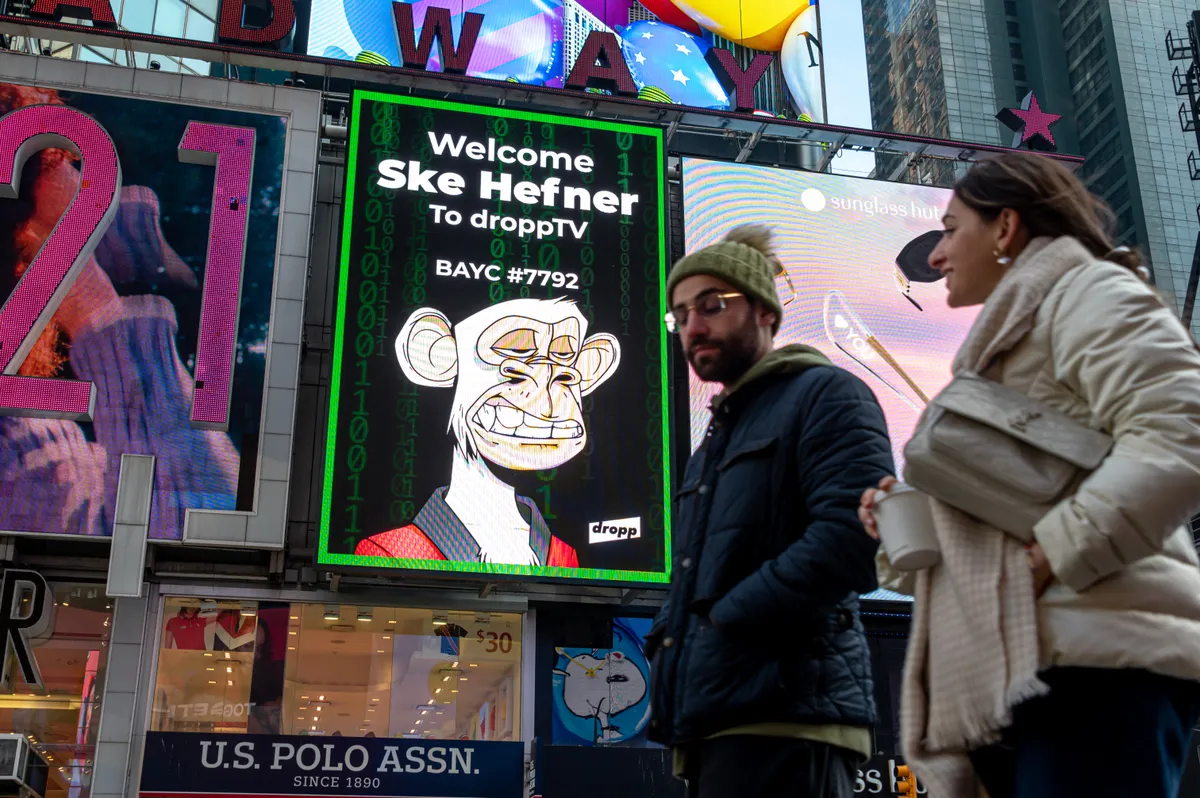Non-Fungible Tokens (NFTs) are the latest craze taking over the internet, with seemingly unknown artists suddenly making millions. But following in the same chaotic path cryptocurrencies have taken before, the world of NFTs has exploded into an uncontrollable phenomenon.
While the concept of an NFT has been around since around 2015, they’ve reached a peak in the last year or two but especially in recent months. With the success that has now been achieved, NFTs have penetrated the world of celebrities and influencers.
Despite this sudden interest in NFTs, the image connected with the technology isn’t entirely positive. According to research by Tidio, roughly 82% of those who are Gen-Z and 51% of millennials believe that NFTs are scams.
Merav Ozair, a blockchain expert and fintech professor thinks this perception comes from a misunderstanding of the technology, and a perpetuation of hype and gimmick culture from influencers.
Read more:
- Future tech: The most exciting innovations from CES 2022
- Future cars: 9 designs that could revolutionise the vehicle industry

“I have my reservations with influencers in NFTs because it gives a misconception of what they are. These influencers and all the hype and the gimmicks gives people the wrong impression. If they don't understand the technology behind it and what it can offer, they won’t understand how important NFTs can be.” says Ozair.
This is not to say that influencers shouldn’t play a role in the advancement of NFTs, nor should they be prevented from investing in them. “If influencers want to be involved with NFTs, they also have to educate, there has to be a balance,” says Ozair.
“The value of technology is definitely there; we just need more education to help people better understand it and see beyond the gimmick and understand the real use cases here.”
The real use cases Ozair is referring to is around authentication. She sees NFTs as a key digital tool for authenticating everything from housing contracts, to marriage licenses and music royalties.
In its current form, it’s understandable where the view of NFTs has come from. In January this year, OpenSea, the largest NFT marketplace so far, announced that over 80% of the items created through its free minting tool were plagiarised, fake or spam.
On top of this, despite the image that NFTs all sell for millions, the majority of sales occurring on OpenSea at its peak either weren't making a profit or were barely breaking even. 33.6 per cent of sales were less than $100 and 20 per cent broke into the $100-$200 region. This is before fees are taken by OpenSea which can take well over half of your profit (or more).
Part of the issue stems from the lack of regulation and the speed that the technology advances. “The regulation is tough because we don’t have a clear understanding of what it is right now. That doesn’t mean there is no guidance but some of it doesn’t actually make sense once you know the technology,” said Ozair.
While the technology is currently unregulated, NFTs could end up seeing the same fate as cryptocurrencies, especially for influencers promoting and investing in them. Recently the Financial Conduct Authority announced it would strengthen risk warnings and ban incentives to invest around cryptocurrencies.
"We are concerned that too many consumers are just ‘clicking through’ and accessing high-risk investments without understanding the risks involved." the FCA said. Under proposed rules from the FCA, firms and influential characters must have relevant experience and understanding of the investments they are promoting.
A number of influencers are also currently caught up in legal issues over their promotion of crypto coins, especially those who were making false promises in their promotion.
This regulation is an important step for the unwieldy world of cryptocurrencies and NFTs could soon see similar regulation. Most people won't make the kind of profits influencers have made so "people need to focus on the technology and not the hype and misconception that they can make a million with an NFT, this is highly unlikely. Most people weren't successful in the internet bubble, it's the same idea. If you want to invest, do your due diligence like any investment and understand the risks."
About our expert, Dr Merav Ozair
Merav is a blockchain expert and fintech professor at Rutgers Business School. She is a global leading expert on blockchains, cryptocurrency and NFTs.
Read more:

